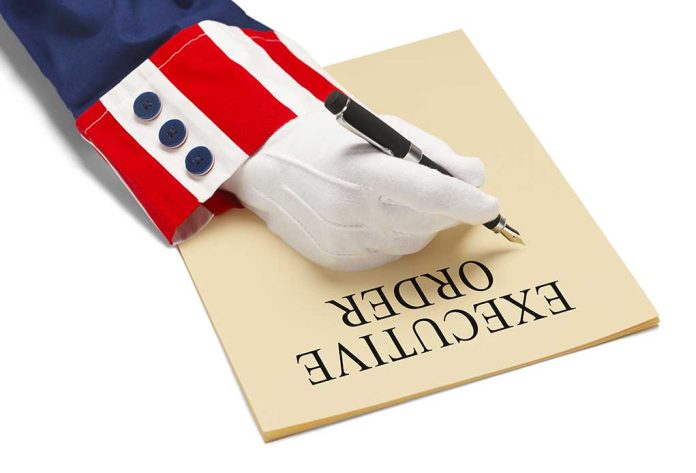
President Trump signed an executive order redirecting taxpayer dollars away from NPR and PBS, citing political bias in their coverage and questioning the need for government-funded media in today’s diverse media landscape.
Key Takeaways
- President Trump’s executive order halts federal funding for NPR and PBS through the Corporation for Public Broadcasting (CPB), with the administration citing political bias in their reporting.
- The order directs multiple federal agencies to stop funding public broadcasting, not just through the CPB but also through the Department of Education and National Endowment for the Humanities.
- NPR receives about 1% of its funding directly from federal sources while PBS receives approximately 15%, but smaller rural stations could face significant impacts.
- The administration argues that government-funded media is outdated given today’s diverse media landscape and that taxpayer funds should only support unbiased news coverage.
- Federal judges have previously ruled against some of Trump’s efforts to defund these organizations, citing that funds were already appropriated by Congress.
Trump Takes Action Against Public Broadcasting
In a significant move affecting America’s public broadcasting landscape, President Trump signed an executive order directing the termination of federal funding for NPR and PBS. The order specifically instructs the Corporation for Public Broadcasting to cease channeling taxpayer dollars to these organizations, which have long been fixtures in American media. The move follows through on campaign promises and addresses long-standing conservative concerns about perceived political bias in public broadcasting’s coverage and programming.
The executive order, published on the White House website, emphasizes that taxpayer funds should only support fair, accurate, unbiased, and nonpartisan news coverage. It targets not only direct CPB funding but also other federal sources including the Department of Education and the National Endowment for the Humanities that provide support to public broadcasting entities. The administration has expanded its efforts beyond NPR and PBS to include defunding the U.S. Agency for Global Media, which oversees Voice of America and Radio Free Europe.
🚨 BREAKING: @POTUS just signed an executive order ENDING the taxpayer subsidization of NPR and PBS — which receive millions from taxpayers to spread radical, woke propaganda disguised as “news.”
Here is the text of the order:
By the authority vested in me as President by the…
— Rapid Response 47 (@RapidResponse47) May 2, 2025
Financial Impact and Station Concerns
The financial implications of this order vary significantly between the national organizations and local stations. NPR receives approximately 1% of its funding directly from federal sources, while PBS receives about 15% of its budget from CPB funds. However, the impact on local stations, particularly those in rural areas with limited alternative funding sources, could be substantial. Congress had allocated $535 million for public media in the current fiscal year, with most of those funds directed toward supporting local television and radio stations.
“Which viewpoints NPR and PBS promote does not matter. What does matter is that neither entity presents a fair, accurate or unbiased portrayal of current events to tax-paying citizens,” states the executive order according to reports.
The administration’s actions reflect President Trump’s previously stated position on public broadcasting. Earlier this year, Trump posted on social media: “REPUBLICANS MUST DEFUND AND TOTALLY DISASSOCIATE THEMSELVES FROM NPR & PBS, THE RADICAL LEFT ‘MONSTERS’ THAT SO BADLY HURT OUR COUNTRY!” The executive order now formalizes these sentiments into official policy. The move was announced through the Trump team’s “Rapid Response 47” account on X, which declared an end to “taxpayer subsidization of NPR and PBS — which receive millions from taxpayers to spread radical, woke propaganda disguised as ‘news.'”
Legal Challenges and Implementation Hurdles
The executive order faces potential legal obstacles. Federal judges have previously ruled against some of Trump’s efforts to defund these media organizations, citing that funds were already appropriated by Congress. The CPB has also sued Trump over his move to fire three Democratic board members who were appointed by President Biden. The order includes a severability clause ensuring that if any part is invalidated, the rest remains effective, suggesting the administration anticipates legal challenges.
The order directs the Secretary of Health and Human Services to ensure NPR and PBS comply with anti-discrimination employment laws while implementing budget cuts. It also emphasizes that it does not create any enforceable rights or benefits against the U.S. government, and must be implemented in accordance with applicable laws and budgetary constraints, providing some administrative flexibility in its execution.
NPR and PBS leaders have defended their organizations against accusations of bias, with NPR’s President and CEO specifically addressing funding needs during recent congressional testimony. Both networks highlight their educational programming and locally focused content that reaches over 99% of the American population, arguing they provide essential services that commercial broadcasters don’t deliver. The executive order, however, counters that government funding of media is unnecessary given today’s diverse media landscape with numerous private alternatives.
Sources:
- Trump orders end of NPR’s federal funding. And, judge blocks use of Alien Enemies Act
- Trump orders end to federal funding for NPR and PBS



